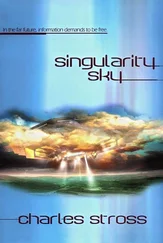Sergio De La Pava - A Naked Singularity
Здесь есть возможность читать онлайн «Sergio De La Pava - A Naked Singularity» весь текст электронной книги совершенно бесплатно (целиком полную версию без сокращений). В некоторых случаях можно слушать аудио, скачать через торрент в формате fb2 и присутствует краткое содержание. Год выпуска: 2012, Издательство: University of Chicago Press, Жанр: Современная проза, на английском языке. Описание произведения, (предисловие) а так же отзывы посетителей доступны на портале библиотеки ЛибКат.
- Название:A Naked Singularity
- Автор:
- Издательство:University of Chicago Press
- Жанр:
- Год:2012
- ISBN:нет данных
- Рейтинг книги:5 / 5. Голосов: 1
-
Избранное:Добавить в избранное
- Отзывы:
-
Ваша оценка:
- 100
- 1
- 2
- 3
- 4
- 5
A Naked Singularity: краткое содержание, описание и аннотация
Предлагаем к чтению аннотацию, описание, краткое содержание или предисловие (зависит от того, что написал сам автор книги «A Naked Singularity»). Если вы не нашли необходимую информацию о книге — напишите в комментариях, мы постараемся отыскать её.
Infinite Jest
A Naked Singularity
A Frolic of His Own
A Naked Singularity
A Naked Singularity — читать онлайн бесплатно полную книгу (весь текст) целиком
Ниже представлен текст книги, разбитый по страницам. Система сохранения места последней прочитанной страницы, позволяет с удобством читать онлайн бесплатно книгу «A Naked Singularity», без необходимости каждый раз заново искать на чём Вы остановились. Поставьте закладку, и сможете в любой момент перейти на страницу, на которой закончили чтение.
Интервал:
Закладка:
Q How do you know that that is the screwdriver that you recovered from the defendant on April 27th?
A It’s got my initials on it.
Q From the time you recovered it what did you do after you recovered that?
A I take it into my possession and I take it back to the stationhouse, I do — I prepare a property clerk’s invoice. I put it in an envelope, put my initials on the item first. Put it in an envelope and seal it up.
Q Did there come a time when you recovered it from the defendant until you submitted it — until you vouchered it, did that leave your possession?
A No, it didn’t.
Q You mentioned that you have your initials on that?
A Yes, I do.
Q Is that in the same or substantially the same condition as when you recovered it on April 27th?
A Yes, it is.
MR.McSLAPPAHAN: I do not have any further questions of this witness at this time.
CROSS EXAMINATION BY DEFENSE COUNSEL:
Q Good morning, or afternoon at this point I guess.
A Good afternoon.
Q Where was Mr. Hurtado when you first saw him?
A In the church.
Q Did you ever see him near the van?
A No.
Q Did you take any pictures of the van other than the four you’ve been shown by the DA?
A No.
Q Did you speak to Mr. Bolo about what happened?
A Yes.
Q Did you ask him what the van was used for?
A He said the van was used for—
Q Hold on. Not responsive judge.
THE COURT: Listen to the question asked and answer only that question.
THE WITNESS: Yes
Q Did you ask Mr. Bolo what the van was used for?
A Yes.
DEFENSE COUNSEL: Nothing further
THE COURT: Any redirect?
MR. McSLAPPAHAN: No, Your Honor.
THE COURT: You may step down, thank you.
THE COURT: Call your next witness please.
MR. McSLAPPAHAN: Your Honor, the People do not have any further witnesses in this case, and the People rest at this time.
THE COURT: Counsel, will there be a defense case?
DEFENSE COUNSEL: No, and except for the matter we discussed earlier off the record the defense rests as well.
THE COURT: Very well. Ladies and gentlemen. You have now heard all of the witnesses you are going to hear in this case. The attorneys and I have some matters to take care of before you will hear summations so we are going to break for lunch early. Come back at 2:15 to hear summations. I will then instruct you on the law and the case will be yours to begin deliberations.
Remember my admonitions. Do not discuss the case with anyone. Do not form any opinions as it is not yet time to deliberate. Keep an open mind and we’ll see you at 2:15. (Whereupon, jurors leave courtroom.)
THE COURT: Counsel, as we discussed I will hear your motion now as if it were made directly after the end of the People’s case and prior to the defense resting.
DEFENSE COUNSEL: Thank you. The People have not presented legally sufficient evidence that the defendant committed the only crime charged in this indictment. Therefore I’m moving for a trial order of dismissal under CPL 300.40. The instant indictment contains the single count of Burglary in the Third Degree, Penal Law section 140.20, a class D nonviolent felony. That statute states that, quote, A PERSON IS GUILTY OF BURGLARY IN THE THIRD DEGREE WHEN HE KNOWINGLY ENTERS OR REMAINS UNLAWFULLY IN A BUILDING WITH INTENT TO COMMIT A CRIME THEREIN, end quote.
THE COURT: Counsel, I’m familiar with the Penal Law, perhaps you can proceed to the gist of your argument.
DEFENSE COUNSEL: I need to proceed in this manner, judge, because I don’t want there to be any future confusion as to precisely what it is I’m arguing here. The term “building” as used in Penal Law 140.20 is defined in Penal Law section 140.00 subsection 2. The relevant portion of that definition, since it is the one relied on by the People in their theory of the case, is quote, ANY VEHICLE USED BY PERSONS FOR CARRYING ON BUSINESS THEREIN, end quote.
My argument for why the People have failed to meet their burden is this: The People have not put forth sufficient evidence that the defendant knew, at the time he broke into the van, that said van was used by persons for carrying on business therein, i.e. that it was a building, a necessary element of Burglary in the Third Degree as it relates to this case.
THE COURT: Counsel, it’s irrelevant whether or not your client knew when he broke into that van that under New York law a van used for business is a building.
DEFENSE COUNSEL: I agree that my client’s knowledge of New York law is, as always, irrelevant. That is not my argument.
THE COURT: What is your argument? Because it makes no sense to me.
DEFENSE COUNSEL: The argument is that in this case the People must prove beyond a reasonable doubt that, at the time he broke into the van, the defendant knew that the van was used to conduct business therein.
THE COURT: The People most certainly do not have to prove that, they simply have to prove that it is a building as that term is defined in the statute. Whether your client knew that that was the state of the law at the time is irrelevant.
DEFENSE COUNSEL: Again, I’m not talking about my client’s knowledge of the law. I’m simply talking about whether or not he knew that the van he was breaking into was a van used to conduct business. It’s clear that 140.20 has just such a mens rea requirement. If you look at Article 15 of the Penal Law, where general principles of culpability are set forth, that fact becomes undeniably evident. Specifically, Penal Law section 15.15, subdivision 1, states that when a statute defining an offense requires a particular culpable mental state, as the instant statute does with the term “knowingly”, then that culpable mental state is presumed to apply to every element of the offense unless an attempt to limit its application clearly appears.
Here, there is no such attempt at a limit. So when the term “knowingly” is used in 140.20 it applies to every element of the crime according to 15.15. An element of the crime here is that the van was used for business purposes. The People must prove every element of 140.20 beyond a reasonable doubt. By extension they must prove beyond a reasonable doubt that the defendant knew that the van was used for business purposes.
They have so utterly failed to do so here that the case shouldn’t even get to the jury for deliberations but should instead be dismissed. The testimony was that the defendant was found in a van that had been left unattended on a dark street at 11:30 p.m. There was no testimony that the van had commercial plates, or commercial lettering on the side, or anything else that would unequivocally delineate it as a van used for commercial purposes. According to the complainant, he had just checked on the van ten minutes before coming upon the defendant. Therefore, adjusting for the time it takes to break into the van, the evidence strongly suggests that the defendant did not spend a great deal of time in the presence of the van before breaking in. The majority of vans are not used by businesses for commercial purposes so a person is justified in believing that a van they are breaking into belongs to this non-commercial majority. The People must overcome that presumption with proof that the defendant knew the vehicle was used to conduct business therein and they have failed to do so. Accordingly, the case should be dismissed. Thank you.
MR. McSLAPPAHAN: Your Honor, may I respond?
THE COURT: Yes.
MR. McSLAPPAHAN: Your Honor, as you’re well aware, a motion by the defense at this time must be viewed in a light most favorable to the People. And addressing the argument that defense counsel has made as far as the knowledge requirement, Your Honor, the ignorance of the law is no excuse. Whether or not this defendant knew what type of van this was is not enough at this point, or it does prove — we’ve proved beyond a reasonable doubt that he knowingly and unlawfully entered into a building. That goes to matters of law that Your Honor will instruct the jury, and is not necessary for the defendant to know that the vehicle that he’s entered into is carried on for commercial business. Arguably he did know.
Читать дальшеИнтервал:
Закладка:
Похожие книги на «A Naked Singularity»
Представляем Вашему вниманию похожие книги на «A Naked Singularity» списком для выбора. Мы отобрали схожую по названию и смыслу литературу в надежде предоставить читателям больше вариантов отыскать новые, интересные, ещё непрочитанные произведения.
Обсуждение, отзывы о книге «A Naked Singularity» и просто собственные мнения читателей. Оставьте ваши комментарии, напишите, что Вы думаете о произведении, его смысле или главных героях. Укажите что конкретно понравилось, а что нет, и почему Вы так считаете.












